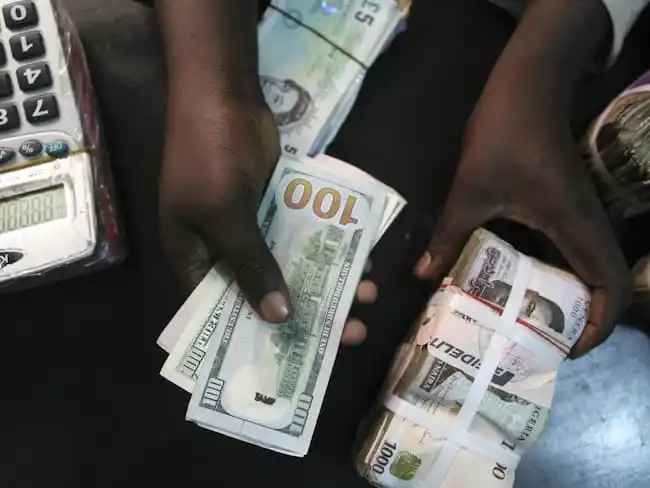The exchange rate between the Naira and the US dollar, according to the data released on the FMDQ Security Exchange, the official forex trading portal, showed that the Naira closed at 1665.50 per $1 on Thursday, September 19, 2024. Naira traded as high as 1652.00 to the dollar at the investors and exporters (I&E) window on Tuesday.
How much is a dollar to naira today in the black market?
Dollar to naira exchange rate today black market (Aboki dollar rate):
The exchange rate for a dollar to naira at Lagos Parallel Market (Black Market) players buy a dollar for N1655 and sell at N1660 on Wednesday, 18th September 2024, according to sources at Bureau De Change (BDC).
Please note that the Central Bank of Nigeria (CBN) does not recognize the parallel market (black market), as it has directed individuals who want to engage in Forex to approach their respective banks.
Dollar to Naira Black Market Rate Today
| Dollar to Naira (USD to NGN) | Black Market Exchange Rate Today |
| Buying Rate | N1655 |
| Selling Rate | N1660 |
Dollar to Naira CBN Rate Today
| Dollar to Naira (USD to NGN) | CBN Rate Today |
| Buying Rate | N1651 |
| Selling Rate | N1652 |
Please note that the rates you buy or sell forex may be different from what is captured in this article because prices vary.
Fuel Subsidy Removal Could Slow External Reserve Growth – CBN
The Central Bank of Nigeria (CBN) has warned that the removal of fuel subsidies, rising import costs, and increased external debt servicing could negatively impact the growth of the nation’s external reserves in 2024/2025.
This was outlined in the CBN’s Monetary, Credit, Foreign Trade, and Exchange Policy Guidelines for the fiscal years 2024/2025.
Despite these concerns, the CBN’s outlook projects economic growth for Nigeria during this period, driven by continued policy support in agriculture and oil sectors, reforms in the foreign exchange market, and the implementation of the Finance Act 2023 and the 2022-2025 Medium-Term National Development Plan (MTNDP).
“The outlook for Nigeria’s external sector in 2024/2025 is optimistic,” the CBN stated, citing expectations of favorable trade terms due to higher crude oil prices and improved domestic oil production. The bank also expects gains from capital inflows and remittances.
However, challenges remain. “Lower crude oil earnings, the removal of fuel subsidies, increasing import bills, and growing external debt servicing obligations pose downside risks to external reserves,” the CBN added.













